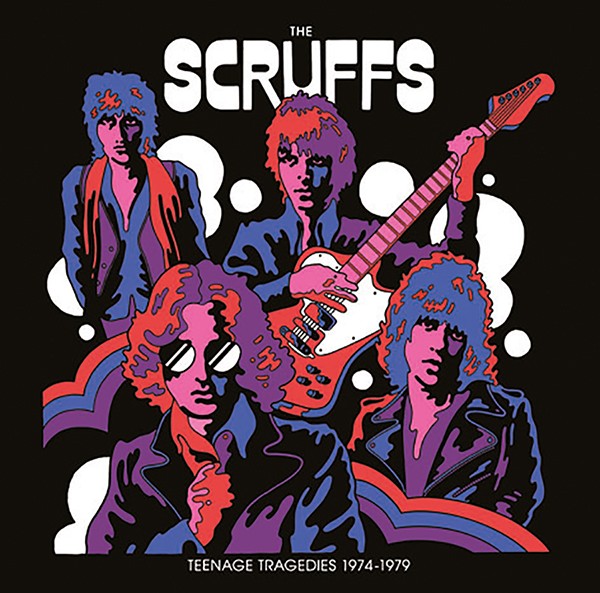So many Memphis musicians have experienced the “Big in Japan” syndrome, though many would need to insert “Europe,” instead. It’s the phenomenon where relative unknowns here are embraced overseas for their groundbreaking vision, their refusal to bow to trends, their determination to follow their own muse. One expression of this is the perennial European (or Japanese or Australian) tour. Suddenly, local nobodies are treated to applause and paying audiences for a few weeks or months, only to return to sleepy, indifferent crowds on the home front.
The same dynamic is at play with overseas record labels. One case in point: Mono-Tone Records, based in Nice, France, who may be doing more to preserve the history of the Memphis underground than any label around today. Their 2018 release of archival tracks by the Klitz, Rocking the Memphis Underground 1978-1980, is the definitive chronicle of the city’s first punk group in their heyday. This year, the label’s done it again with Teenage Tragedies 1974-1979, a collection of previously unreleased gems by the Scruffs that they’ve released in collaboration with Pop Supérette Records.

Alas, the Scruffs are known and loved by only a few local scenesters these days, despite having forged a sound and attitude that has aged very well. Rick Branyan, the group’s original bassist, thinks it may go back to a problem the band had even then: They’ve always been hard to pigeonhole.
“We cut our first album at Ardent with John Fry in ’77, and released it early ’78, I think,” he recalls. “It had a few songs with a very slight punk edge to them, and because of that we were misclassified as punks here. We were slated to warm up for the Sex Pistols. It didn’t happen, but people thought we were a good match. Really, we weren’t punk at all; we were poppy as hell. But because our songs were short, and we didn’t have a hundred guitar solos and long jams, we were ‘punk.’ Our album was well reviewed in New York, so we went up there, played CBGB’s and Max’s Kansas City, and all the places, but in New York we had the opposite problem: We weren’t punk enough. So we were too pop for New York and too punk for Memphis.”
That’s not a bad characterization of their sound. Choppy, jangly guitars cascade over pounding rhythms and Steve Burns’ attitude-laden vocals, complete with irresistible hooks and background harmonies. Though Memphis had already bred its own style of power pop, with Big Star and others, this was a new sound that would also be tagged with that label. The mid- to late-’70s brought a new power pop, epitomized by the Knack and similar hitmakers. But this didn’t sit well with most Memphis crowds at the time.
“It was real hard to get gigs,” recalls Branyan. “The Scruffs had to leave town because we literally couldn’t get gigs. And when we did get them, we would have the same 20 people show up and the rest would just hate us. Everybody wanted to hear cock rock or ZZ Top-type stuff or mellow-out type stuff. Club owners hated it. They’d just pull the plug on you.”
Still, the Scruffs found a niche, and Burns still fronts revamped versions of the band to this day. Their debut, Wanna Meet the Scruffs?, was praised by uber-critic Robert Christgau at the time: “A middle-period Beatles extrapolation in the manner of Big Star (another out-of-step Memphis power-pop group on a small, out-of-step Memphis label), it bursts with off harmonies, left hooks, and jolts of random energy. The trouble is, these serve a shamelessly and perhaps permanently post-adolescent vision of life’s pain, most of which would appear to involve gurls [sic].”
The new Mono-Tone collection digs even deeper, with side A devoted to more Ardent tracks cut before the debut, and side B comprising post-debut tracks cut at Shoe Studios. They’re all of a piece, revealing a band that hit the ground running with a fully realized sound as early as 1974. Still, there’s a downside to all this recognition coming from elsewhere. Teenage Tragedies 1974-1979, released in France this June, sold out quickly. The label assures fans that a new pressing will be available in December, but you’ll need to visit your favorite record store and request an order from the distributor, Forced Exposure. But for those in search of the city’s true innovators, it’s well worth the legwork.